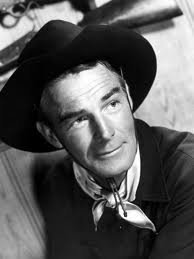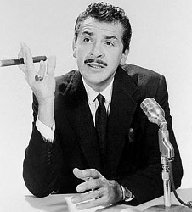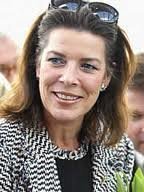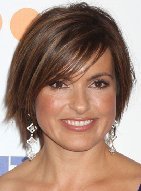John Fitzgerald Kennedy (May 29, 1917 – November 22, 1963), often referred to as JFK or Jack, was an American politician who served as the 35th president of the United States from 1961 until his assassination in 1963. He was the youngest person elected president. Kennedy served at the height of the Cold War, and the majority of his foreign policy concerned relations with the Soviet Union and Cuba. A Democrat, Kennedy represented Massachusetts in both houses of the U.S. Congress prior to his presidency.
Born into the prominent Kennedy family in Brookline, Massachusetts, Kennedy graduated from Harvard University in 1940, joining the U.S. Naval Reserve the following year. During World War II, he commanded PT boats in the Pacific theater. Kennedy's survival following the sinking of PT-109 and his rescue of his fellow sailors made him a war hero and earned the Navy and Marine Corps Medal, but left him with serious injuries. After a brief stint in journalism, Kennedy represented a working-class Boston district in the U.S. House of Representatives from 1947 to 1953. He was subsequently elected to the U.S. Senate, serving as the junior senator for Massachusetts from 1953 to 1960. While in the Senate, Kennedy published his book, Profiles in Courage, which won a Pulitzer Prize. Kennedy ran in the 1960 presidential election. His campaign gained momentum after the first televised presidential debates in American history, and he was elected president, narrowly defeating Republican opponent Richard Nixon, the incumbent vice president.
Kennedy's presidency saw high tensions with communist states in the Cold War. As a result, he increased the number of American military advisers in South Vietnam. The Strategic Hamlet Program began in Vietnam during his presidency. In 1961, he authorized attempts to overthrow the Cuban government of Fidel Castro in the failed Bay of Pigs Invasion and Operation Mongoose. In October 1962, U.S. spy planes discovered Soviet missile bases had been deployed in Cuba. The resulting period of tensions, termed the Cuban Missile Crisis, nearly resulted in the outbreak of nuclear war. In August 1961, after East German troops erected the Berlin Wall, Kennedy sent an army convoy to reassure West Berliners of U.S. support, and delivered one of his most famous speeches in West Berlin in June 1963. In 1963, Kennedy signed the first nuclear weapons treaty. He presided over the establishment of the Peace Corps, Alliance for Progress with Latin America, and the continuation of the Apollo program with the goal of landing a man on the Moon before 1970. He also supported the civil rights movement but was only somewhat successful in passing his New Frontier domestic policies.
On November 22, 1963, Kennedy was assassinated in Dallas. His vice president, Lyndon B. Johnson, assumed the presidency. Lee Harvey Oswald, a former U.S. Marine, was arrested for the assassination, but he was shot and killed by Jack Ruby two days later. The FBI and the Warren Commission both concluded Oswald had acted alone, but conspiracy theories about the assassination persist. After Kennedy's death, Congress enacted many of his proposals, including the Civil Rights Act of 1964 and the Revenue Act of 1964. Kennedy ranks highly in polls of U.S. presidents with historians and the general public. His personal life has also been the focus of considerable sustained interest following public revelations in the 1970s of his chronic health ailments and extramarital affairs. Kennedy is the most recent U.S. president to have died in office.
John Fitzgerald Kennedy was born outside Boston in Brookline, Massachusetts, on May 29, 1917, at 83 Beals Street, to Joseph P. Kennedy Sr., a businessman and politician, and Rose Kennedy (née Fitzgerald), a philanthropist and socialite. His paternal grandfather, P. J. Kennedy, served as a Massachusetts state legislator. Kennedy's maternal grandfather and namesake, John F. Fitzgerald, served as a U.S. Congressman and was elected to two terms as Mayor of Boston. All four of his grandparents were children of Irish immigrants. Kennedy had an older brother, Joseph Jr., and seven younger siblings: Rosemary, Kathleen, Eunice, Patricia, Robert, Jean, and Edward.
U.S. Naval Reserve (1941–1945)
Kennedy planned to attend Yale Law School, but canceled when American entry into World War II seemed imminent.[44] In 1940, Kennedy attempted to enter the army's Officer Candidate School. Despite months of training, he was medically disqualified due to his chronic lower back problems. On September 24, 1941, Kennedy, with the help of the director of the Office of Naval Intelligence (ONI) and the former naval attaché to Joe Sr., Alan Kirk, joined the United States Naval Reserve. He was commissioned an ensign on October 26, 1941, and joined the staff of the Office of Naval Intelligence in Washington, D.C.
John F. Kennedy was sworn in as the 35th president at noon on January 20, 1961. In his inaugural address, he spoke of the need for all Americans to be active citizens: "Ask not what your country can do for you—ask what you can do for your country." He asked the nations of the world to join to fight what he called the "common enemies of man: tyranny, poverty, disease, and war itself."
If you want to read a whole lot more, go here: https://en.wikipedia.org/wiki/John_F._Kennedy
- SERVES
- 6
- COOK TIME
- 1 Hr
These home-style potatoes topped with Cheddar cheese bring back memories of a restaurant specialty. A scrumptious side dish couldn't be any easier! Our recipe calls for unpeeled potatoes, which make this dish quick. Remember, though, there are no rules. So if you want to peel your potatoes, go for it!
- 6 medium baking potatoes, unpeeled and cubed (about 2 pounds)
- 1/4 cup butter
- 1 (1-ounce) envelope onion soup mix
- 1 1/2 cup (6-ounces) shredded Cheddar cheese
- 5 green onions, chopped
- Preheat oven to 400º. Place potatoes in a 9-inch by 13-inch baking dish coated with cooking spray. Dot with butter, and sprinkle dry onion soup mix over the top.
- Cover and bake 25 minutes; uncover and stir. Cover and bake an additional 30 minutes or until potatoes are tender. Sprinkle with cheese and green onions; serve immediately.











1 comment:
Pie day? I bet last weekend’s beef Bourgogne will make a fine filling. Thanks for the inspiration.
Post a Comment